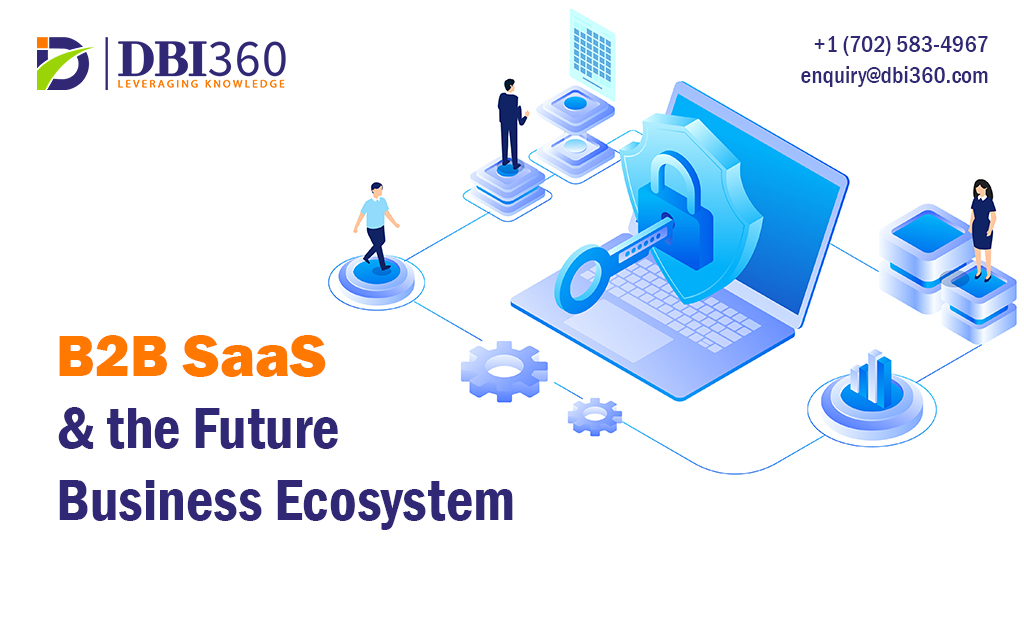The business ecosystem is changing due to digital advancements, with B2B SaaS leading the way. Startups and enterprises alike are adopting B2B SaaS solutions to drive growth and enhance operational efficiency. In this blog, we explore the future of B2B SaaS, including its transformative potential, emerging trends, and real-world examples. Discover how B2B SaaS impacts businesses of all sizes in the evolving business ecosystem.
Evolution of B2B SaaS
Rise of B2B SaaS: The adoption of B2B SaaS has witnessed exponential growth in recent years, with businesses recognizing the benefits of cloud-based software solutions over traditional on-premises alternatives.
Shifting Business Landscape: The digital transformation wave has disrupted industries, creating a need for agile and scalable solutions that adapt to changing market dynamics.
Cost-Effective and Scalable: B2B SaaS provides cost savings and scalability, enabling startups and enterprises to optimize resources, reduce upfront investments, and scale their operations as needed.
Improved Accessibility: B2B SaaS solutions offer enhanced accessibility, allowing businesses to access critical tools and functionalities from anywhere, anytime, fostering remote collaboration and flexibility.
Impact on Startups
- Leveling the Playing Field:
- B2B SaaS empowers startups by providing access to advanced software tools and functionalities that were once limited to larger enterprises.
- This enables startups to compete on a more even playing field and bridge the technology gap.
- Cost Efficiency:
- Startups can leverage B2B SaaS solutions to minimize IT infrastructure costs.
- Cloud-based software eliminates the need for expensive hardware and ongoing maintenance.
- This allows startups to allocate resources more efficiently and invest in other areas of their business.
- Rapid Deployment:
- B2B SaaS solutions offer quick and easy deployment.
- Startups can get up and running swiftly, accelerating their time-to-market.
- This agility enables startups to seize growth opportunities and stay ahead of the competition.
- Scalability:
- B2B SaaS allows startups to scale their software usage based on their evolving needs.
- As startups grow and expand into new markets, they can easily adapt their software capabilities without the constraints of traditional licenses.
- This scalability gives startups the flexibility to meet changing customer demands and support their business growth.
- Enhanced Collaboration:
- B2B SaaS solutions foster seamless collaboration among team members, regardless of their location.
- Startups can leverage these tools to enhance communication, share information, and collaborate on projects in real-time.
- This improves productivity, teamwork, and overall efficiency within the startup ecosystem.
Empowering Enterprises
Enterprises can enhance efficiency by integrating B2B SaaS solutions, streamlining operations, and automating tasks. Scalable solutions offered by B2B SaaS enable enterprises to adapt to evolving needs and expand into new markets. By leveraging data-driven insights, enterprises can deliver enhanced customer experiences and personalize interactions.
Future Trends and Innovations
In the rapidly evolving landscape of B2B SaaS, several trends are shaping the future of these solutions. Here are some key developments to look out for:
Artificial Intelligence and Machine Learning: The integration of AI and ML technologies within B2B SaaS solutions is set to revolutionize data analytics, predictive modeling, and decision-making capabilities. These advanced technologies will enable businesses to extract valuable insights from vast amounts of data, enhance automation, and drive efficiency.
Internet of Things (IoT) Integration: B2B SaaS solutions will increasingly leverage IoT devices and sensors to collect real-time data from various sources. This integration will enable businesses to optimize processes, enhance asset management, and improve operational efficiency. By leveraging IoT data, businesses can make informed decisions, identify patterns, and proactively address issues.
Customization and Integration: As businesses have unique needs and existing systems in place, B2B SaaS solutions will evolve to offer greater customization options and seamless integration capabilities. This means that organizations can tailor the software to match their specific requirements and integrate it smoothly with their existing infrastructure, minimizing disruptions and maximizing the value derived from the solution.
Enhanced Security and Data Privacy: With the increasing focus on data security and privacy, B2B SaaS providers will prioritize robust security measures and compliance standards. This includes encryption, secure data storage, access controls, and adherence to privacy regulations such as GDPR and CCPA. Businesses can have peace of mind knowing that their sensitive data is protected.
Continuous Innovation and Collaboration: The future of B2B SaaS is characterized by continuous innovation driven by collaboration between solution providers and businesses. This collaborative approach ensures that the solutions evolve and adapt to the changing needs and challenges of organizations, empowering them to achieve their goals.
By embracing these emerging trends and leveraging the power of B2B SaaS, businesses can gain a competitive edge, improve operational efficiency, and drive growth in the dynamic and interconnected business landscape of the future. The possibilities are endless, and organizations that embrace these advancements will be well-positioned to thrive and succeed.
Conclusion
The future of B2B SaaS in the business ecosystem is bright and promising. B2B SaaS is transforming how organizations operate and compete, benefiting startups and enterprises alike. It offers cost-effective and scalable solutions that enhance efficiency and drive growth. Embracing B2B SaaS unlocks new opportunities, helps businesses adapt to market changes, and stay ahead in the digital world. With advancing technology, the potential for B2B SaaS to transform the business landscape is limitless, providing a competitive edge and fueling success.

